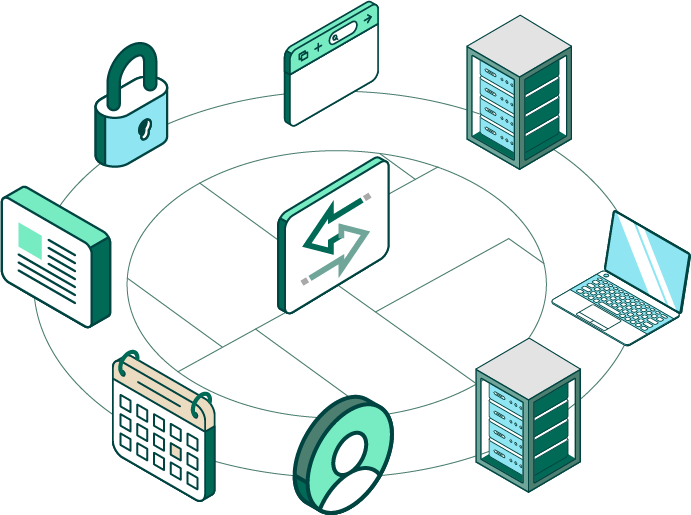Understanding the Major Regulations
Understand the difference between major cybersecurity compliance regulations like PCI DSS, HIPAA, SOX, GDPR, and more as you explore compliance solutions from Fortra. Go beyond the basics with a top-line knowledge of lesser-known data protection requirements like LGPD, DORA, and FISMA and learn what it takes to operate compliantly within a range of different industries. Whether you find yourself within one of the covered industries or simply plan on working with one, Fortra can help you become audit-ready and turn your data compliance value from a liability into an asset.
Understanding Major Frameworks
Cyber security frameworks are a set of policies, procedures, and best practices to create a strong security posture. These frameworks provide guidance to organizations on how to protect an IT estate from data breaches and operational disruption.
Cybersecurity & Compliance
Email Data Protection
Find the ally you need in the fight against Business Email Compromise (BEC), phishing and social engineering attacks, ransomware, ATO, accidental data loss and other email-borne threats.
Data Privacy
Keep your data where it belongs. Partner with the solutions that help you stay compliant with data privacy regulations across the board, including HIPAA, SOX, GDPR, PCI DSS, and more.
Data Loss Prevention (DLP)
Avoid compliance blunders with best-in-class Data Loss Prevention (DLP). Our one-of-a-kind approach to DLP leverages cloud-based Managed Detection and Response for a scalable, no-compromise protection.
Data Classification
Operate safely in industries with strict data requirements when you identify, classify, and secure sensitive assets across platforms and in the cloud.
Featured Case Study

Alliant Credit Union Enhances PCI DSS with MFT Agents
Illinois-based credit union Alliant was processing over 500 file transfers a week with homegrown solutions. As their need to scale increased and work began on a new data warehouse, it became necessary to consider an automated solution.
“With our current setup, we saw we needed a more robust system,” explained Computer Operations Supervisor Jay Wehner. “We wanted better automation of the files and a process to import them.” They chose GoAnywhere MFT. Finding it a painless transition, they used it to create secure encrypted connections between their servers. Said Wehner, “No other product was evaluated. GoAnywhere is a true ‘one product does it all.’ It’s not just file movement and SFTP.”
Branching out beyond the product’s basic capabilities, Alliant adopted GoAnywhere Secure Mail and GoAnywhere GoDrive, a cloud-based Enterprise File Sync and Sharing (EFSS) service which immediately replaced their current cloud-based file sharing solution. “[Those] that are using it … are loving it.”
Leveraging GoAnywhere MFT agents ultimately helped Alliant to enhance their PCI DSS compliance. “We needed a way to securely store and transmit PCI data,” Wehner revealed. “By utilizing GoAnywhere Agents, we were able to use a secure channel to transmit this data. We now no longer use standard protocols like SMB for file transfers.”
Compliance & Audit Reporting Services
Cyber Compliance by Industry
Cybersecurity compliance requirements are as unique as the sectors they protect. Know the data regulations by industry and what it takes to securely do business with each one.
Healthcare
As threats to health care increase, protect your peace of mind with HIPAA compliant architecture.
As threats to health care increase, protect your peace of mind with HIPAA compliant architecture.
Critical National Infrastructure
CNI sectors from energy to water to manufacturing benefit from NIST frameworks designed to secure high-risk national agencies.
CNI sectors from energy to water to manufacturing benefit from NIST frameworks designed to secure high-risk national agencies.
Retail
Take charge of your bottom-line and secure sensitive customer data with PCI DSS compliant payment card systems.
Take charge of your bottom-line and secure sensitive customer data with PCI DSS compliant payment card systems.
Finance
Simplify SOX compliance with streamlined documentation and reporting on internal controls.
Simplify SOX compliance with streamlined documentation and reporting on internal controls.
Compliance Resources
Take the Next Step Toward Compliance
Ace your next audit with Fortra and take the guesswork out of the compliance process.